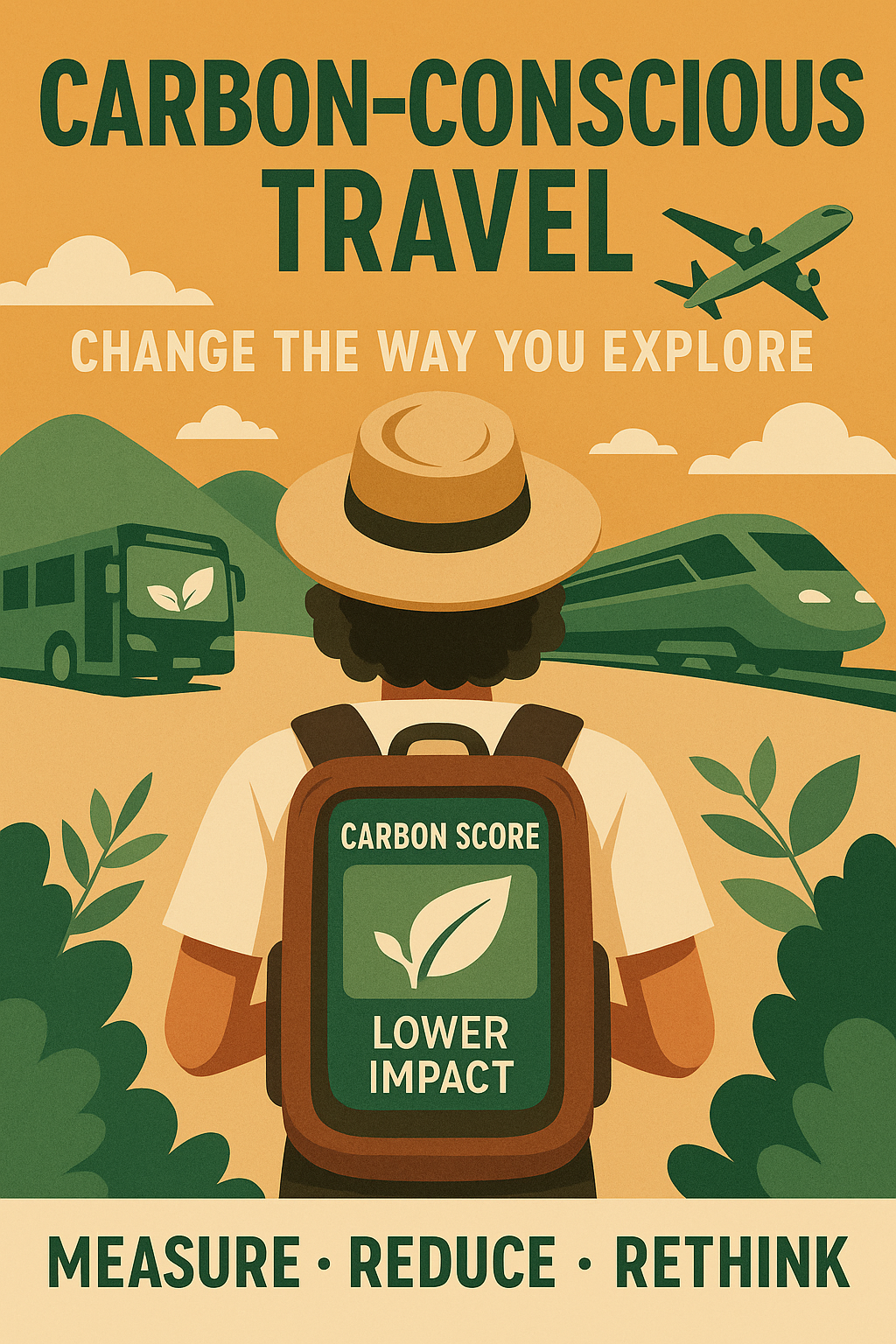Picture this: It’s 2035. You return from your dream holiday, unpack your bags, and instead of pulling out a fridge magnet or a kitschy T-shirt, you scroll through your travel app and smile — you’ve come home with a smaller carbon footprint.
Because by then, the ultimate travel trophy won’t be a trinket. It’ll be proof that you journeyed lightly.
Right now, we don’t talk about this enough. The UN World Tourism Organization (UNWTO) estimates that tourism contributes 8–11% of global greenhouse gas emissions, and transport — mostly flights — is the main villain, accounting for nearly 75% of that. If we keep cruising along without change, those emissions could balloon by 25% by 2030. Every mile matters. Every choice matters.
Enter: Carbon Tapping — The Fitbit for Your Travel Guilt

It’s not as sci-fi as it sounds. Think of carbon tapping as the calorie count revolution, but for your passport. Fifteen years ago, we didn’t think twice about a frothy cappuccino until menus started telling us it had 200 calories. And once we knew? We started making different choices.
Now imagine your Goa weekend getaway or your Peru trekking adventure coming with a “carbon score” right next to the hotel star rating and ticket price. That’s carbon tapping — giving your trip a numerical conscience.
Pallavee Dhaundiyal Panthry from the World of Circular Economy (WOCE) says it simply:
“We move from blind consumption to mindful choices when we measure our impact. Behavioural change at the individual level is critical.”
Life in Low Impact Mode
Some travellers aren’t waiting for the industry to catch up. In the misty hills of Uttarakhand, Osho, the host of Kaivalya Nature Stay in Nathuakhan, is already living this future. His eco-retreat collects rainwater, composts waste, and serves farm-to-table meals made from seasonal produce.
Osho’s philosophy is deceptively simple: sustainability is not sacrifice; it’s smart design. He takes the train instead of flying, uses carbon-calculating apps, and persuades guests to ditch their screens for forest walks. Next on his list? Partnering with locals for clean-up drives so tourism leaves behind stories, not plastic wrappers.
Small Choices, Big Impact
Aadya Gupta, co-founder of the Envirocare Foundation, sees carbon tapping as a series of micro-habits that stack up: rent an e-scooter instead of hailing a cab, hop on a train instead of a plane, book stays powered by clean energy, donate to forest restoration.
Envirocare uses Carbon Book, an app that doesn’t just measure emissions — it coaches you into reducing them. Awareness fuels action, action trims your footprint, and that success keeps you going. Or as Peter Drucker put it, “What cannot be measured cannot be managed.”
From Consciousness to Culture
Here’s the real challenge: sustainability can’t stay a niche elective in the school of travel — it has to be the core curriculum. That means carbon tapping built into every booking app, government incentives for low-impact journeys, and public campaigns that make “low-carbon” as aspirational as “luxury.”
For travellers, it’s about adding one more must-check before you pack: visa, weather, insurance… carbon score. For the industry, it’s about transparency, better tools, and making carbon awareness as natural as checking in for your flight.
No, carbon tapping won’t erase tourism’s climate impact overnight. But it might just turn our collective guilt into collective action — one trip, one choice, one footprint at a time. Because in the future, travel won’t just be about where you go. It will be about how softly you can land there.








